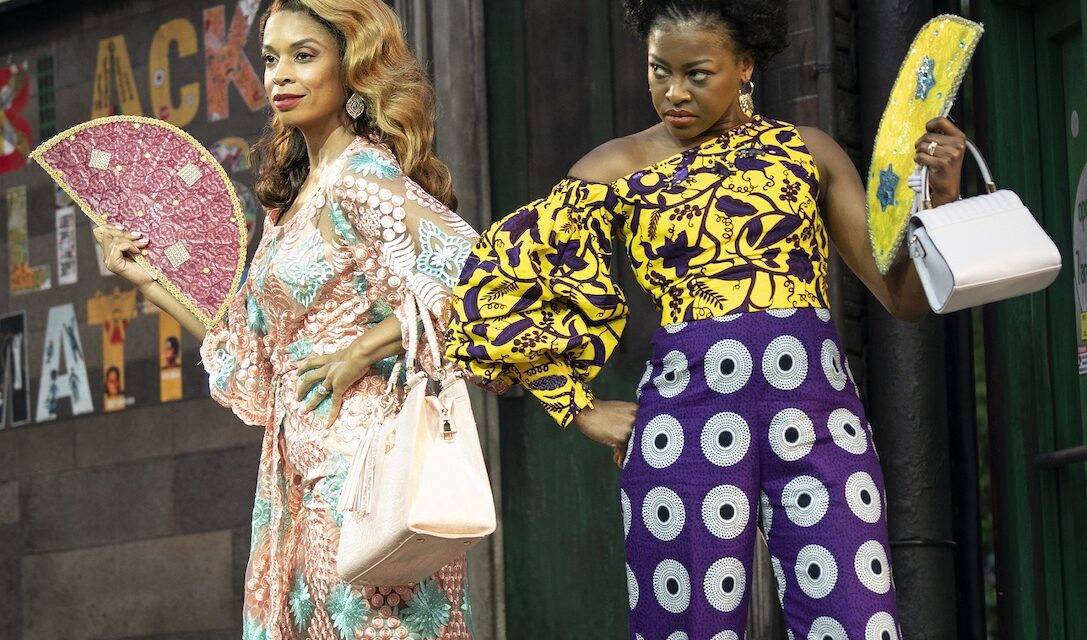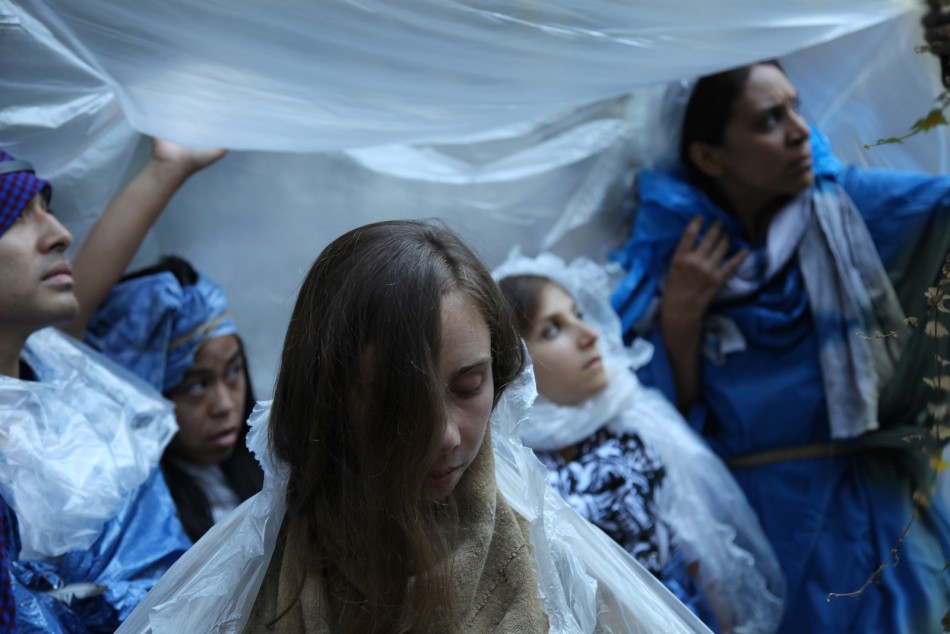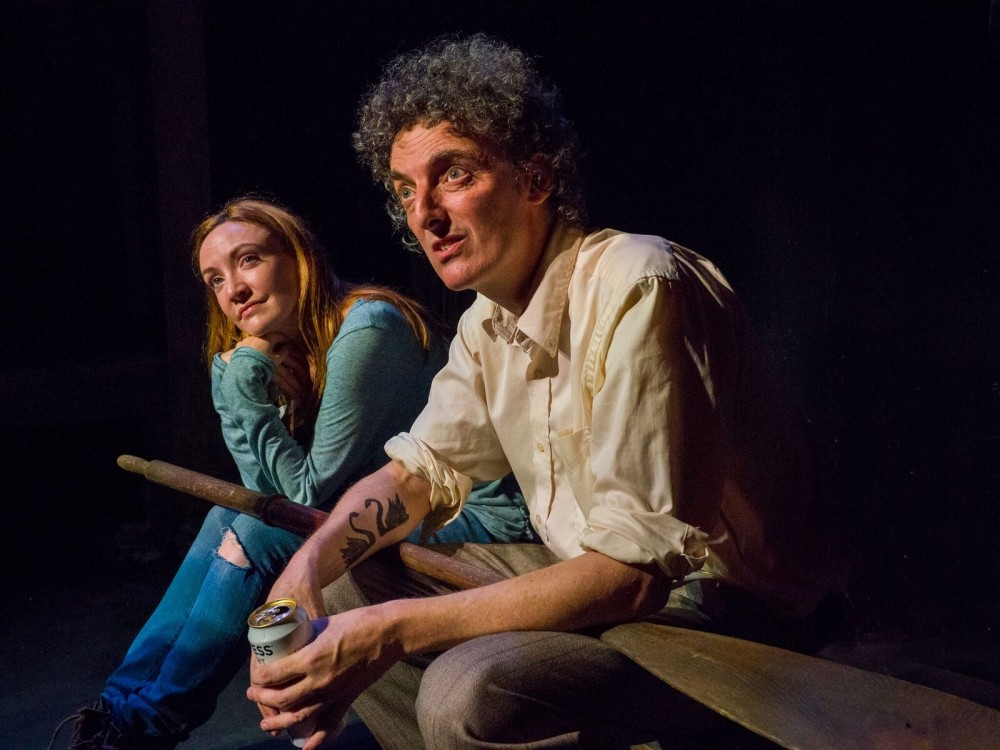By JK Clarke . . .
William Shakespeare’s play, The Merry Wives of Windsor may be one of the earliest “spin-offs” in history. On the heels of the success of Henry IV, Parts I & 2 in the mid-1590s, it is said that Queen Elizabeth I requested a follow up play featuring Sir John Falstaff, the complicated and celebrated comic relief of those plays. So, right around the turn of the century, the Bard complied, at least in part, by writing a play in which he is mocked, not made to fall in love, as the Queen desired. But, unlike some better appreciated spinoffs in entertainment history—like the TV sitcoms Mork and Mindy (from Happy Days)—Merry Wives did not achieve anywhere near the status of its originator. It is, in fact, one of the least revered of all Shakespeare’s plays—some scholars have gone so far as to score it “decidedly inferior.” Which is why the Public Theater’s decision to run the play as its first post-pandemic return to Shakespeare in the Park at the Delacorte Theater is, to say the least, a curious one.
Perhaps it’s best to explore the play’s themes to understand why the Public wanted to re-emerge on the wings of Merry Wives. Primarily a farce in which the tables are turned on the charlatan Falstaff (a delightfully self-assured and bombastic Jacob Ming-Trent) who is attempting to seductively wheedle money, and possibly sex, from two wealthy, happily married women. As the play focuses chiefly on the intermingling of the social classes, all members of the community, whether they be servants/assistants or local roustabouts, contrive to gang up on Falstaff so that they might teach him a lesson. Meanwhile, a number of individuals in the community (mostly men, but in this production also a woman) are vying for the hand of Anne Page (Abena), daughter to Mister Kwame Page (Kyle Scatliffe) and Madam Ekua Page (Pascale Armand), the latter being one of the objects of Falstaff’s ardor. Like any good Shakespearean comedy, these plots become almost hopelessly intertwined.
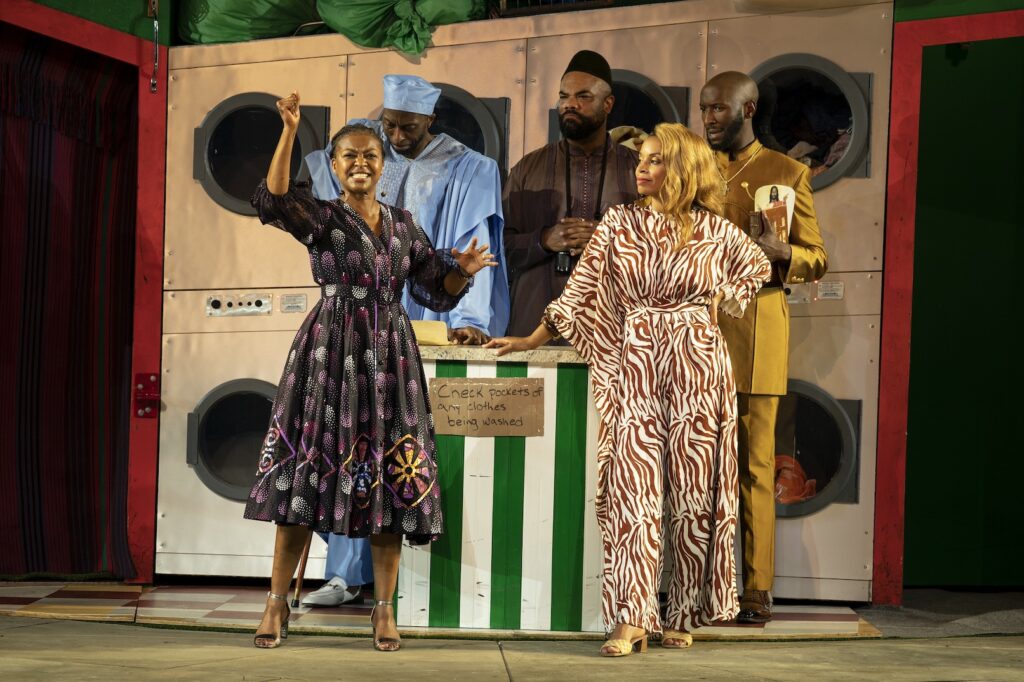
Doubling down on the notion of community, Director Saheem Ali, along with Jocelyn Bioh—who moulded and adapted the play to its new setting—have made this a contemporary Merry Wives, set in Harlem, in an African and Caribbean neighborhood. In theory, it’s a wonderful concept that builds on the play’s community-oriented themes. In practice, however, the result is a muddled, difficult to understand production. In an open air theater, replete with the park noise, helicopters and gusts of wind, audience members are already faced with the challenge of catching and deciphering Elizabethan language, but add to it not one (which would have been manageable), but multiple accents that aren’t necessarily similar (Jamaican and Nigerian accents, for example, sound nothing alike), and one is forced to spend time trying to understand words, while losing track of other details. The device would have been far more effective in an indoor production, or perhaps as one of the Public’s celebrated Mobile Unit productions.
Despite this, and because Merry Wives is not especially known for its poetry or dialog, it’s easy enough to enjoy the romp. Particularly captivating are Beowulf Boritt’s terrific set, both realistic and simultaneously cartoonish: a New York City block, done up in brick with typical storefronts, bike lanes and even an apartment building cleverly called “The Windsor.” And Dede Ayite’s costumes, representing various cultures, including contemporary American hip hop style (Falstaff wearing a Tupac shirt that reads “Poetic Justice” is a particularly amusing touch) are a colorful flourish and acknowledgement of the various components of the melting pot; especially wonderful are the costumes for the dance at the play’s end, a celebration of both ritual and the finale of a wonderful prank.
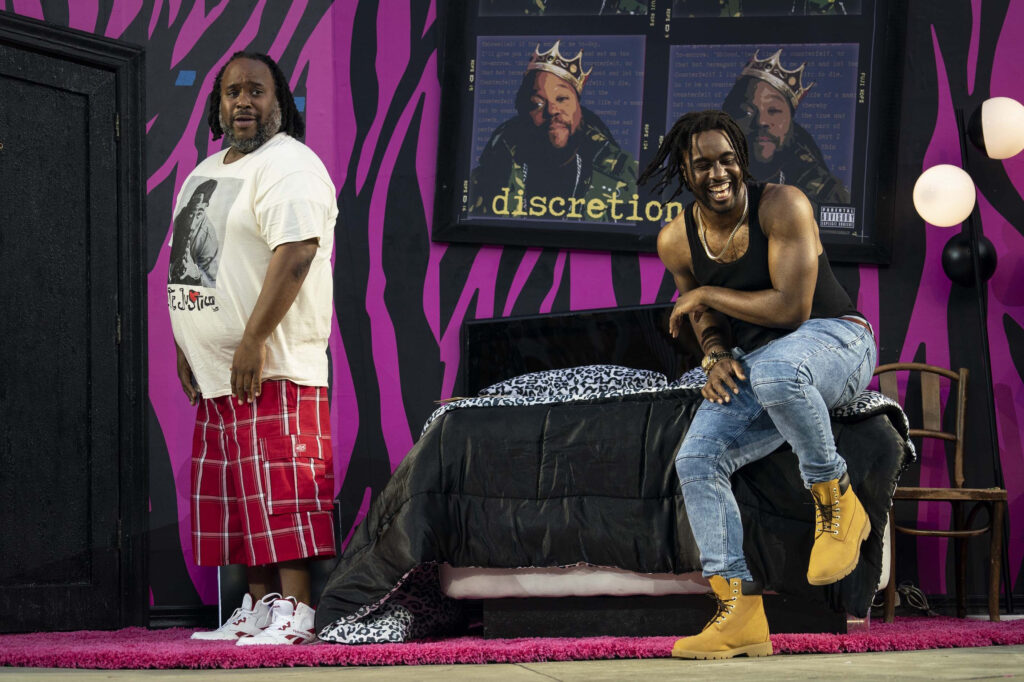

But it’s a handful of delightful performances that truly anchor the play. David Ryan Smith (a Mobile Unit veteran who may well have more Shakespeare roles under his belt than just about any actor in NYC) is a hilarious Dr. Caius, a role written almost expressly to mock the French, as Shakespeare was wont. Smith tempered Caius’s foppishness perfectly and nailed his repeated “by gar!” utterance, always a feature of the play. His delight, at the end, of having inadvertently married “oon garcon” is joyous, and dovetails nicely with the overall love message. Susan Kelechi Watson was a fun-loving Madam Ford (the other object of Falstaff’s contrived ardor), who played Sir John’s tantalizing antagonist in a perfectly lighthearted spirit. And one would never recognize him unless it was pointed out that the jealous Mister Nduka Ford (who also masquerades as the Jamaican Mr. Brook in order to confirm his jealous fears) is played to perfection by Gbenga Akinnagbe, who fans know as both Tom Robinson in the recent Broadway production of To Kill a Mockingbird as well as the vicious hit man Chris Partlow in HBO’s The Wire. Akkinagbe disappears into his roles like few others.
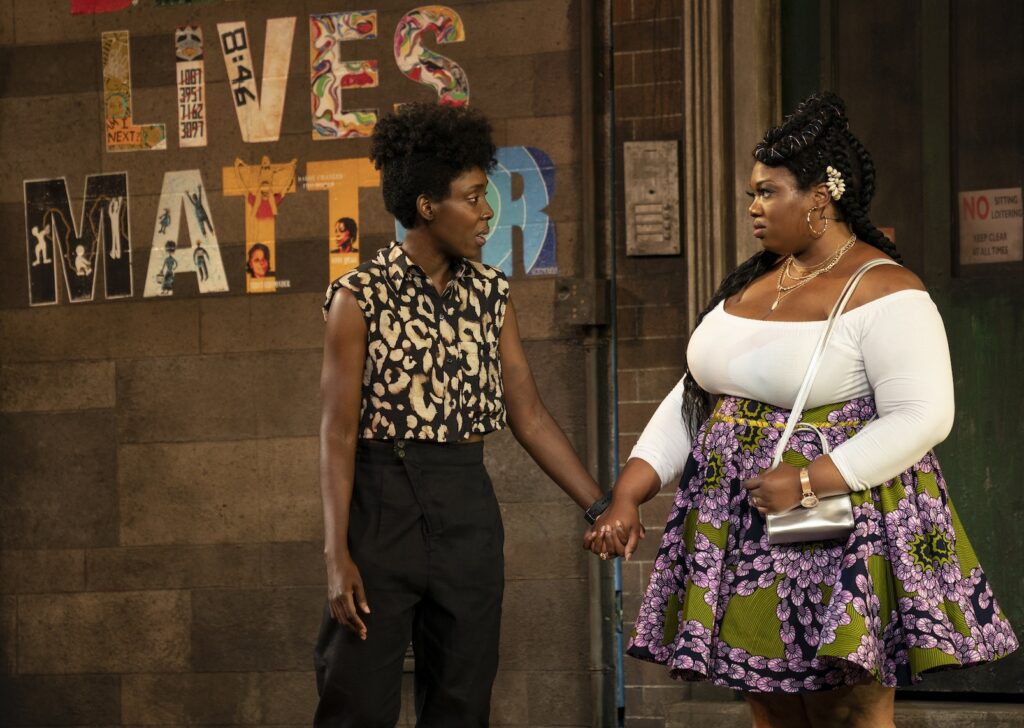

In the end, it’s also a play about love and acceptance. About being able to love whomever you want, without restriction, interference or jealousy. And about the need for members of a community to embrace and accept each other. It’s a message that, right now, needs to be heard.
As every review in these early months must, it’s also important to point out this production’s place in New York’s return to live theater and the necessity of gathering to celebrate life and art. This Merry Wives of Windsor, and its focus on love and community is the perfect way to do that. So, perhaps this is the right Shakespeare for the moment after all.
Merry Wives – Public Theater – Shakespeare in the Park Delacorte Theater, Central Park, continues thru September 18. Digital lottery hosted by Goldstar. www.publictheater.org
Photos: Joan Marcus


